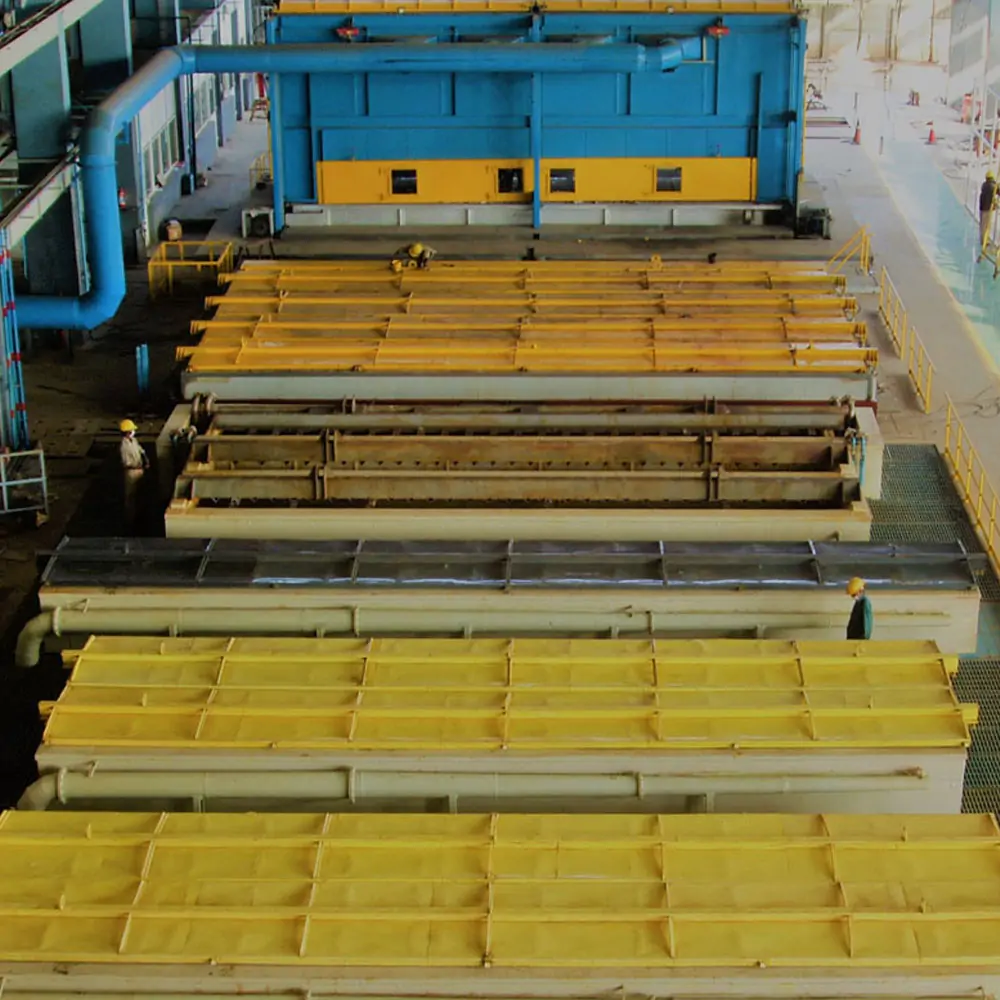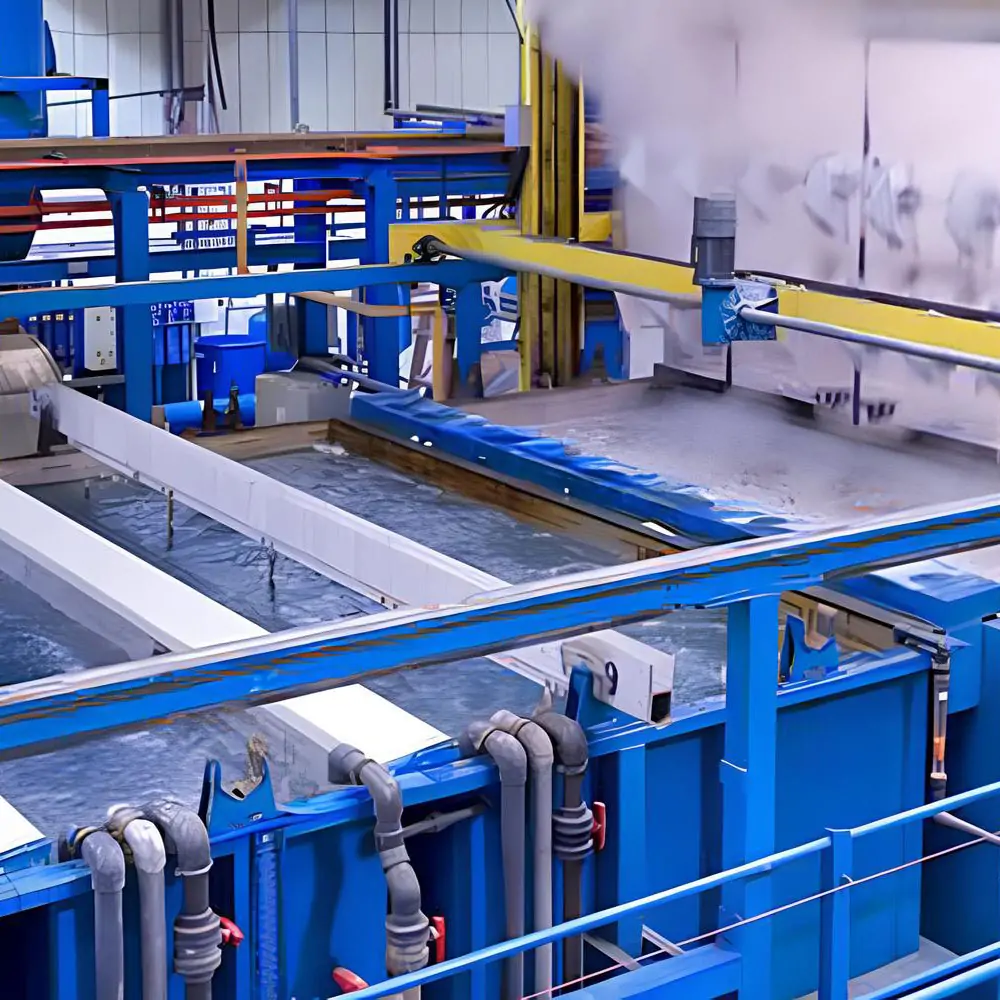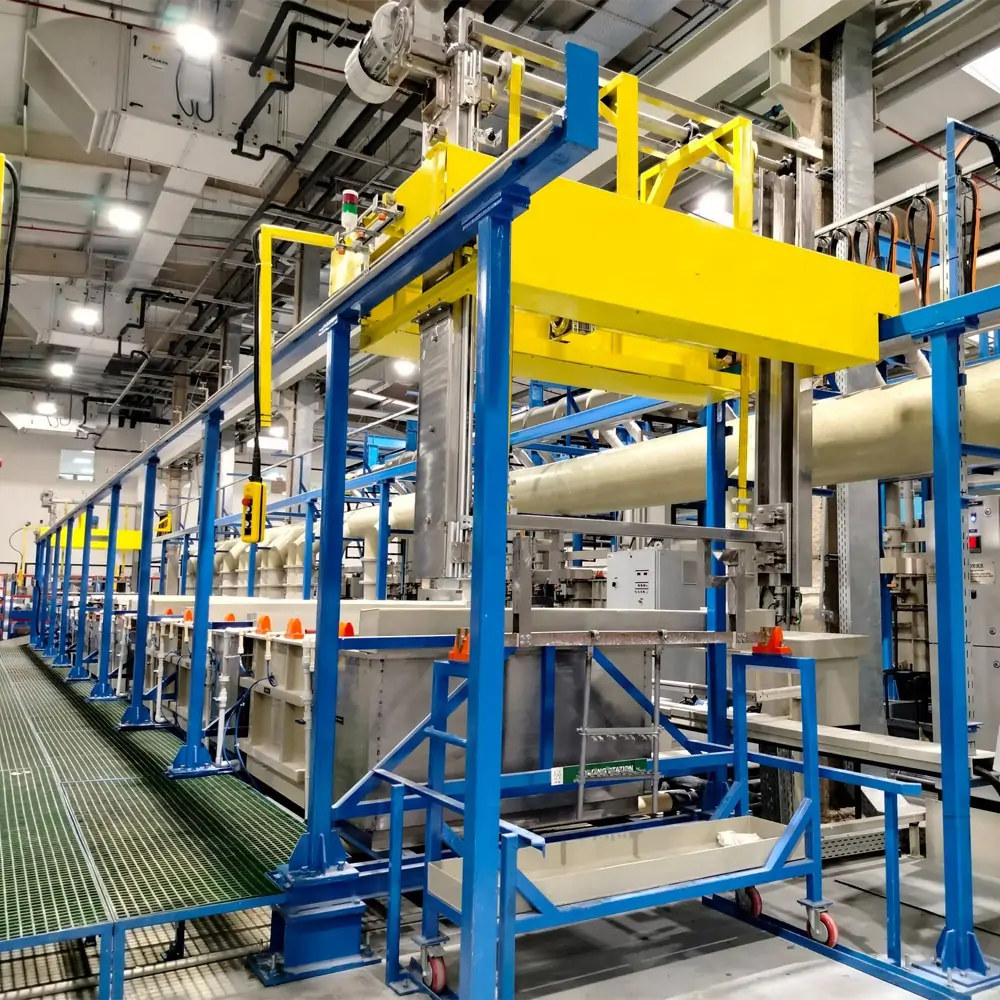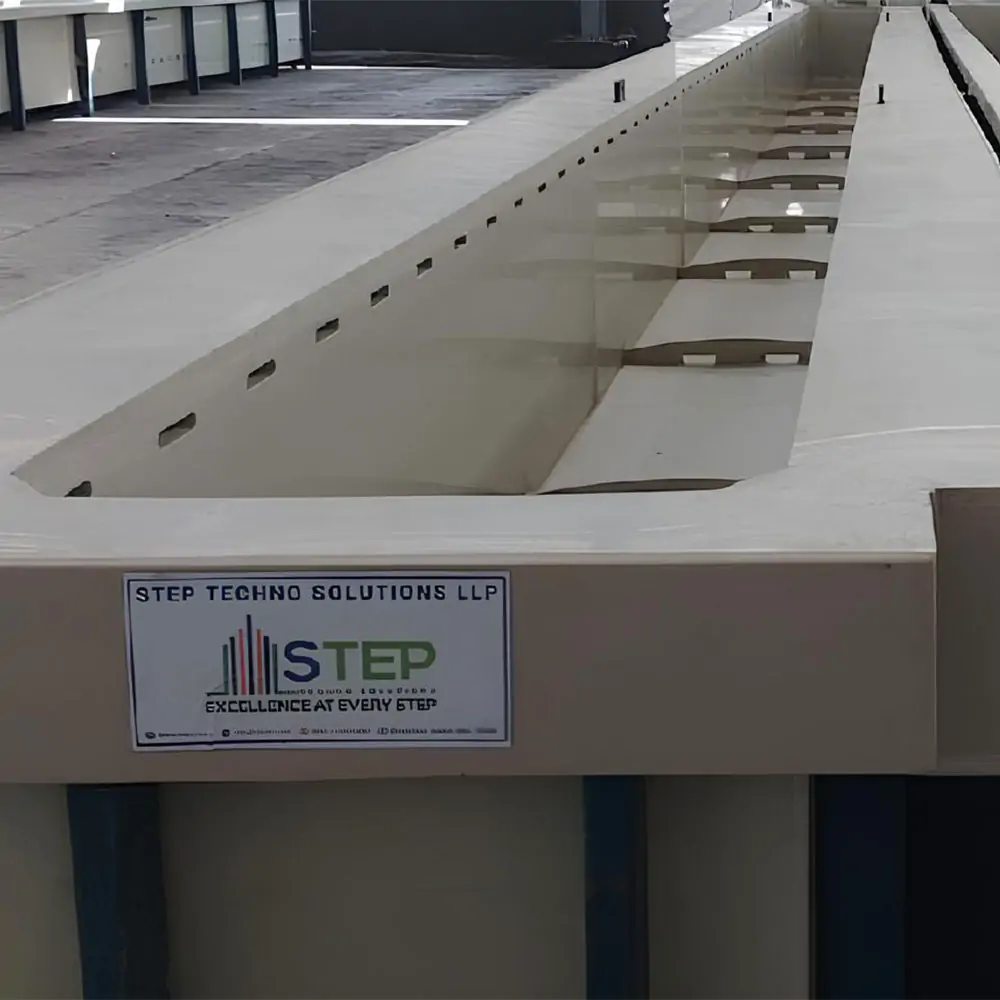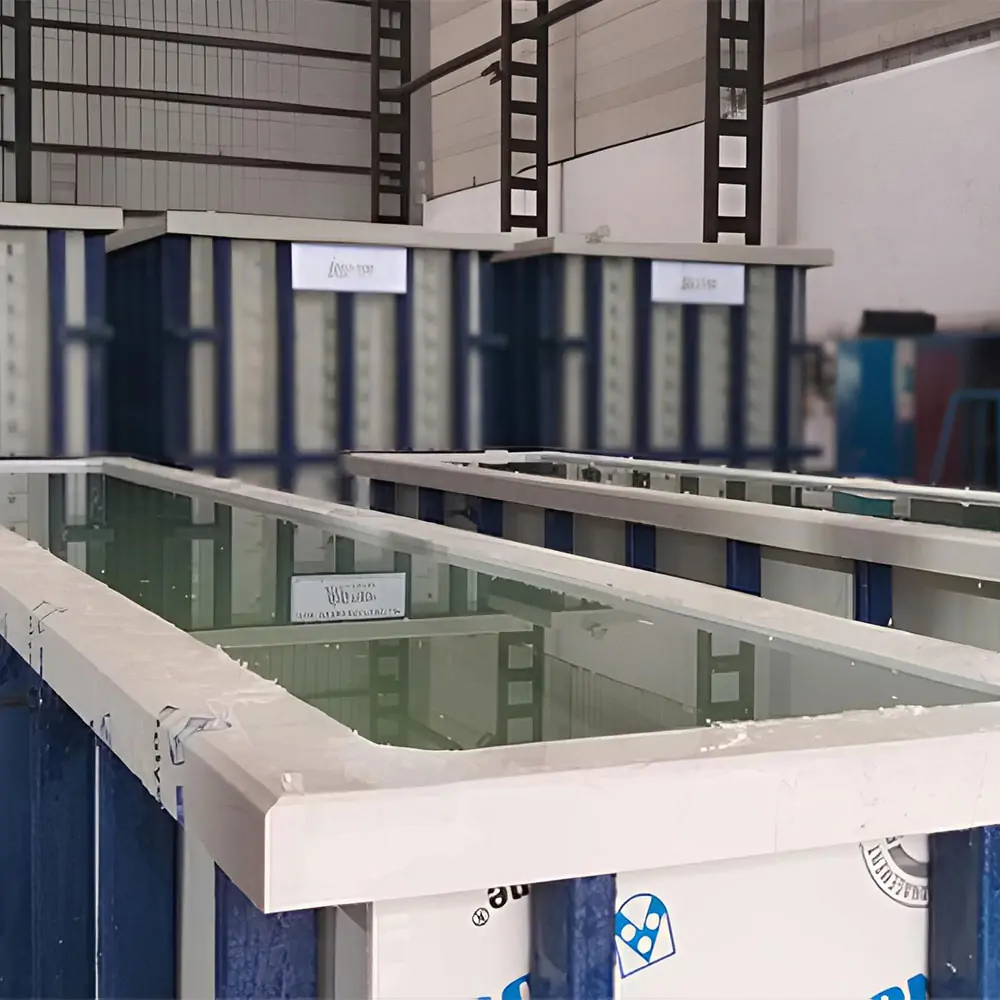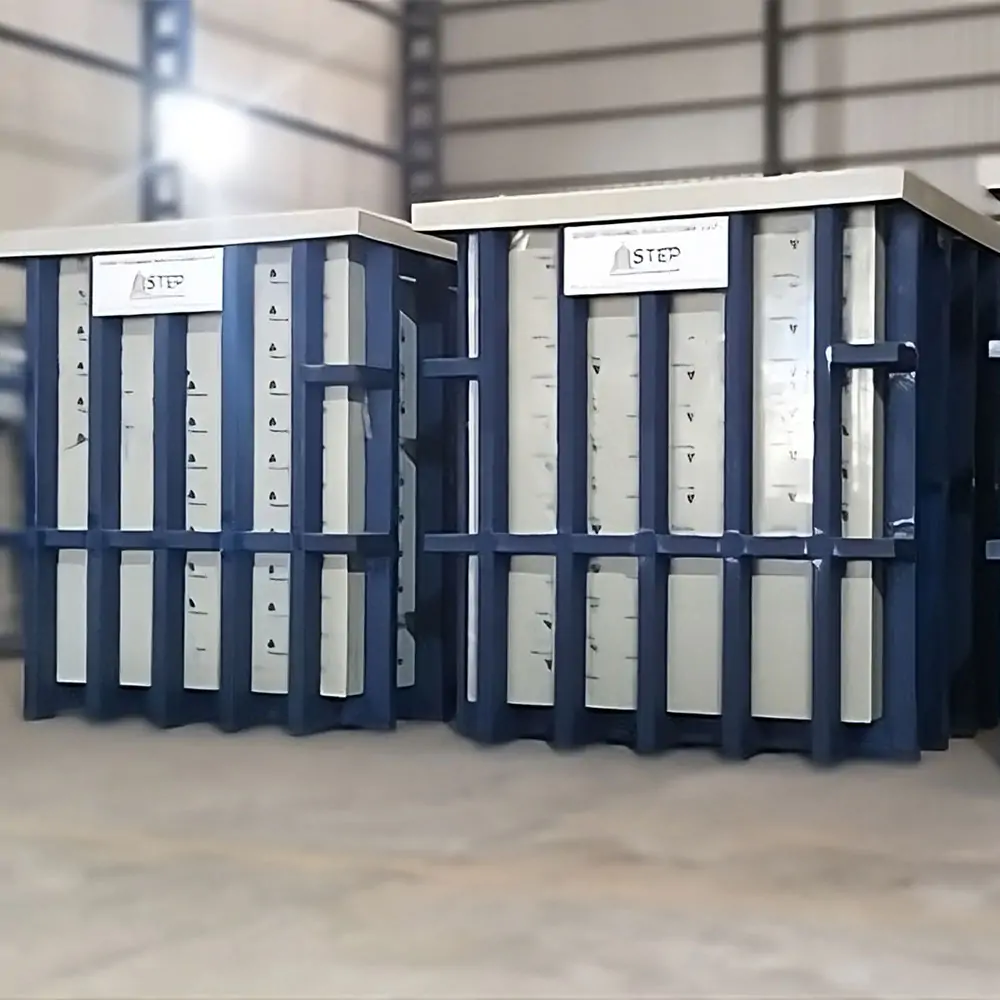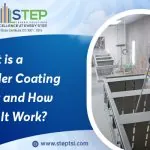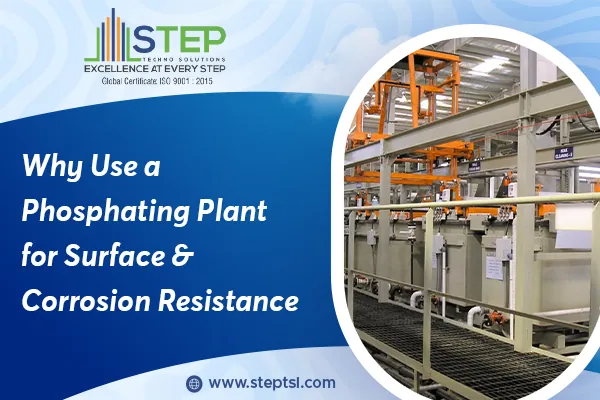A phosphating plant is essential for achieving superior surface preparation and corrosion resistance in industrial applications. It chemically treats metal surfaces to form a protective phosphate layer, ensuring better paint adhesion and long-lasting durability. This process significantly reduces the risk of rust, peeling, and coating failure. Industries like automotive, metal fabrication, heavy engineering, pipelines, and appliances depend on phosphating to enhance product quality and reduce long-term maintenance costs. Proper surface preparation with phosphating also improves coating efficiency, minimizing rework and material wastage.
By using a phosphating plant, manufacturers can increase the operational life of metal components, reduce corrosion-related damage, and maintain safety standards. It offers a reliable, cost-effective, and scalable solution for industries seeking strong surface treatment before painting or powder coating. Investing in phosphating technology is a smart step toward enhanced performance, lower costs, and improved product longevity.
Surface Preparation: Foundation of Long-Lasting Coatings
Proper surface preparation is a critical step before any coating process. Clean, chemically pre-treated surfaces provide the foundation for paint adhesion. If overlooked, these surfaces lead to coating failures like flaking, blistering, or rust formation. Sandblasting, degreasing, and then phosphating creates a superior surface profile for coatings to adhere to—ensuring smooth application, uniform coverage, and prolonged durability.
The Phosphating Process
Using a chemical bath, phosphating produces a phosphate coating on metal. Metals are first cleaned and de-rusted. Then immersed in a phosphating solution—typically zinc, iron, or manganese phosphate—where crystals form a protective crystalline structure. This layer offers excellent corrosion resistance and acts as a micro-textured surface, enhancing paint or coating adhesion.
Main Benefits:
- Improved paint adhesion
- Excellent corrosion resistance
- Uniform coating thickness
- Reduced paint consumption
Corrosion Resistance: Cost-Efficient Protection
Corrosion degrades metal components, leading to costly repairs and replacements. Phosphating significantly slows corrosion by forming a crystalline barrier that protectsthe underlying metal. Compared to other methods like primers alone, phosphating provides enhanced metal-carrier support and increases coating lifespan exponentially.
Types of Phosphating Plants
- Batch Immersion Plants
Ideal for small-scale or varied batch processing. Allows flexibility and precise control, ideal for shops handling varied parts. - Continuous Conveyor Systems
Designed for mass production lines—common in automotive, appliance, and hardware sectors—for high throughput and consistent treatment. - Roller or Spray-Phosphate Equipment
Used for large sheets or light fabrication parts, minimizing handling and maximizing coverage efficiency.
Choosing the Right Plant Depends On:
- Part size and shape
- Production volume
- Process integration
- Chemical and environmental constraints
Cost-Effectiveness of Phosphating Plants
Though installing a phosphating plant requires capital investment, the long-term benefits outweigh the cost:
- Longer coating lifespans mean fewer reworks and replacements.
- Lower paint usage improves sustainability and reduces material cost.
- Reduced maintenance and warranty claims improve uptime and revenues.
Compared to corrosion damage, the initial investment in phosphating provides a strong return in prolonged product durability and revenue preservation.
Why Choose STEP® Techno Solutions LLP?
When it comes to advanced surface treatment systems, STEP® Techno Solutions LLP stands as the most trusted manufacturer of phosphating plants in India. With years of experience and innovative engineering, we specialize in offering highly efficient, long-lasting, and suited phosphating plant solutions that meet your industry’s specific needs. Our systems are designed to meet the demands of both small-scale and large-scale production environments, whether you need compact batch lines for precision parts or automated conveyor-based setups for continuous operations. Every phosphating plant for surface preparation & corrosion resistance we deliver ensures excellent coating adhesion, improved paint life, and maximum protection from rust and environmental wear.
We use high-quality, corrosion-resistant materials, reliable control systems, and provide complete after-sales support to ensure your production runs smoothly. Our team of engineers assists you through planning, installation, training, and ongoing technical support, helping you achieve consistent performance with minimal downtime. As one of the leading phosphating plants manufacturers in India, we are committed to offering energy-efficient, eco-conscious, and performance-driven solutions. From automotive and heavy engineering to electronics and general manufacturing, our systems are trusted across diverse sectors.
Conclusion
Phosphating plants are essential for businesses that depend on coating integrity and corrosion protection. By improving paint adhesion, enhancing durability, and reducing maintenance requirements, these systems significantly lift operational efficiency and profitability.
Investing in a high-quality phosphating plant not only secures product longevity but also strengthens your competitive advantage. Connect with STEP® Techno Solutions LLP to discover how a customized phosphate solution can elevate your manufacturing capabilities. Call: +91 98988 75757, Email: info@steptsl.com.
FAQ
What is a phosphating plant used for?
A phosphating plant is used to chemically treat metal surfaces, creating a phosphate layer that enhances paint adhesion, prevents corrosion, and improves surface durability for better performance in industrial applications.
Why is surface preparation important before coating metal?
Proper surface preparation ensures the coating bonds effectively to the metal. Without it, paint may peel or rust may develop, reducing the life and appearance of metal components.
How does phosphating improve corrosion resistance?
Phosphating creates a protective crystalline coating that prevents moisture and chemicals from directly contacting the metal, reducing corrosion and increasing component lifespan in harsh environments.
What industries benefit from phosphating plants?
Automotive, appliances, metal fabrication, construction, and electronics industries benefit from phosphating plants, as they enhance coating durability and protect parts from corrosion and wear.
Is phosphating suitable for all types of metals?
Phosphating works best on ferrous metals like steel and iron. It may not be suitable for aluminum or non-ferrous metals without proper pretreatment and specific formulations.
Does phosphating reduce maintenance costs?
Yes, phosphating lowers maintenance costs by increasing coating life, preventing rust damage, and reducing the need for regular repainting or repairs.
What are the environmental benefits of phosphating?
Modern phosphating systems use eco-friendly chemicals and reduce paint waste by improving coating efficiency. They also minimize harmful emissions and support cleaner production processes.
How long does a phosphated surface last?
When properly coated and maintained, phosphated surfaces can last for years, especially in corrosion-prone environments, ensuring better value and protection.
Can phosphating be automated?
Yes, many phosphating plants feature automation like conveyors, dosing systems, and robotic handling for consistent treatment, high throughput, and reduced manual labor.
What factors should be considered when buying a phosphating plant?
Consider production volume, metal types, automation level, chemical compatibility, space availability, and compliance with safety and environmental standards before choosing a phosphating plant.

